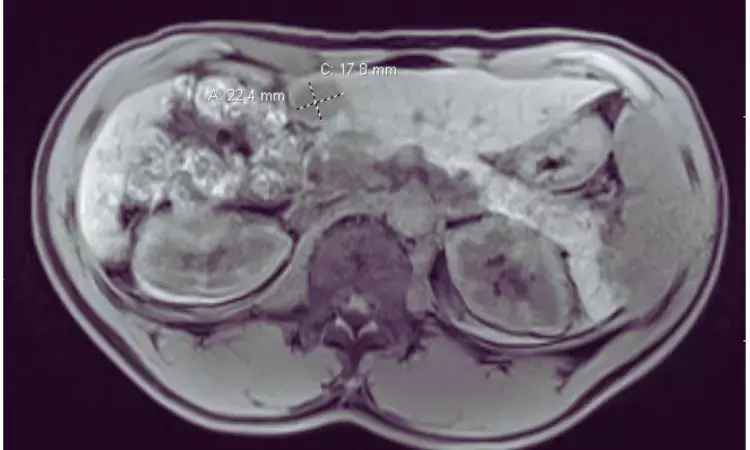- Home
- Medical news & Guidelines
- Anesthesiology
- Cardiology and CTVS
- Critical Care
- Dentistry
- Dermatology
- Diabetes and Endocrinology
- ENT
- Gastroenterology
- Medicine
- Nephrology
- Neurology
- Obstretics-Gynaecology
- Oncology
- Ophthalmology
- Orthopaedics
- Pediatrics-Neonatology
- Psychiatry
- Pulmonology
- Radiology
- Surgery
- Urology
- Laboratory Medicine
- Diet
- Nursing
- Paramedical
- Physiotherapy
- Health news
- Fact Check
- Bone Health Fact Check
- Brain Health Fact Check
- Cancer Related Fact Check
- Child Care Fact Check
- Dental and oral health fact check
- Diabetes and metabolic health fact check
- Diet and Nutrition Fact Check
- Eye and ENT Care Fact Check
- Fitness fact check
- Gut health fact check
- Heart health fact check
- Kidney health fact check
- Medical education fact check
- Men's health fact check
- Respiratory fact check
- Skin and hair care fact check
- Vaccine and Immunization fact check
- Women's health fact check
- AYUSH
- State News
- Andaman and Nicobar Islands
- Andhra Pradesh
- Arunachal Pradesh
- Assam
- Bihar
- Chandigarh
- Chattisgarh
- Dadra and Nagar Haveli
- Daman and Diu
- Delhi
- Goa
- Gujarat
- Haryana
- Himachal Pradesh
- Jammu & Kashmir
- Jharkhand
- Karnataka
- Kerala
- Ladakh
- Lakshadweep
- Madhya Pradesh
- Maharashtra
- Manipur
- Meghalaya
- Mizoram
- Nagaland
- Odisha
- Puducherry
- Punjab
- Rajasthan
- Sikkim
- Tamil Nadu
- Telangana
- Tripura
- Uttar Pradesh
- Uttrakhand
- West Bengal
- Medical Education
- Industry
Algorithm based on MRI features can predict liver cancer recurrence after resection

China: A model based on MRI features could help clinicians predict advanced-stage hepatocellular carcinoma (HCC) recurrence after patients have undergone liver resection, a recent study published in Radiology has revealed.
"An algorithm combining tumour size, serum neutrophil count, and arterial phase hyperenhancement proportion predicted liver cancer recurrence better than current staging systems and may identify patients at high risk," the researchers reported. The findings could translate into better patient outcomes.
Liver resection is a common treatment for hepatocellular carcinoma, however, its long-term effect can be limited by the frequent recurrence of the disease. That's why patients at high risk for advanced-stage recurrence could benefit from adjuvant therapies and a more intensive postsurgical surveillance strategy for extrahepatic metastases
The group explained that identifying patients at high risk for advanced-stage hepatocellular carcinoma recurrence after liver resection may improve patient survival. Therefore, Hanyu Jiang, Sichuan University, Chengdu, China, and colleagues aimed to develop a model (which the team dubbed advanced stage recurrence after resection or ASRAR) including MRI features for predicting postoperative advanced-stage HCC recurrence in a single-centre, retrospective study.
The study included consecutive adult patients who underwent preoperative contrast-enhanced MRI and curative-intent resection for early- to intermediate-stage HCC from 2011 to 2021. Three radiologists assessed 52 qualitative features on MRI scans.
In the training set, the team performed a Fine-Gray proportional subdistribution hazard analysis to identify laboratory, clinical, pathologic, imaging, and surgical variables to include in the predictive model. In the test set, they computed the concordance index (C-index) to compare the developed model with current staging systems. The Kaplan-Meier survival curves were compared. 532 patients were included; 302 patients from the training set, and 128 patients from the test set.
The study revealed the following findings:
- Advanced-stage recurrence was observed in 12.6% and 11.7% of patients from the training and test sets, respectively.
- Serum neutrophil count (109/L), tumour size (in centimetres), and arterial phase hyperenhancement proportion on MRI scans were associated with advanced-stage recurrence and included in the predictive model.
- The model showed better test set prediction for advanced-stage recurrence than four staging systems (2-year C-indexes, 0.82 vs 0.63–0.68).
- Patients at high risk for HCC recurrence (model score, ≥15 points) showed increased advanced-stage recurrence and worse all-stage recurrence-free survival (RFS), advanced-stage RFS, and overall survival than patients at low risk for HCC recurrence.
According to the authors, the ASRAR model shows promise, but more research is needed.
"Future multicenter prospective studies enrolling participants with more diverse aetiology and treatments are warranted to refine the ASRAR score and to validate its uses as a potential clinical decision-making tool," they concluded.
Reference:
Development of a Model including MRI Features for Predicting Advanced-stage Recurrence of Hepatocellular Carcinoma after Liver Resection. Hanyu Jiang, Chongtu Yang, Yidi Chen, Yanshu Wang, Yuanan Wu, Weixia Chen, Maxime Ronot, Victoria Chernyak, Kathryn J. Fowler, Mustafa R. Bashir, and Bin Song. Radiology 2023 309:2
Dr Kamal Kant Kohli-MBBS, DTCD- a chest specialist with more than 30 years of practice and a flair for writing clinical articles, Dr Kamal Kant Kohli joined Medical Dialogues as a Chief Editor of Medical News. Besides writing articles, as an editor, he proofreads and verifies all the medical content published on Medical Dialogues including those coming from journals, studies,medical conferences,guidelines etc. Email: drkohli@medicaldialogues.in. Contact no. 011-43720751


